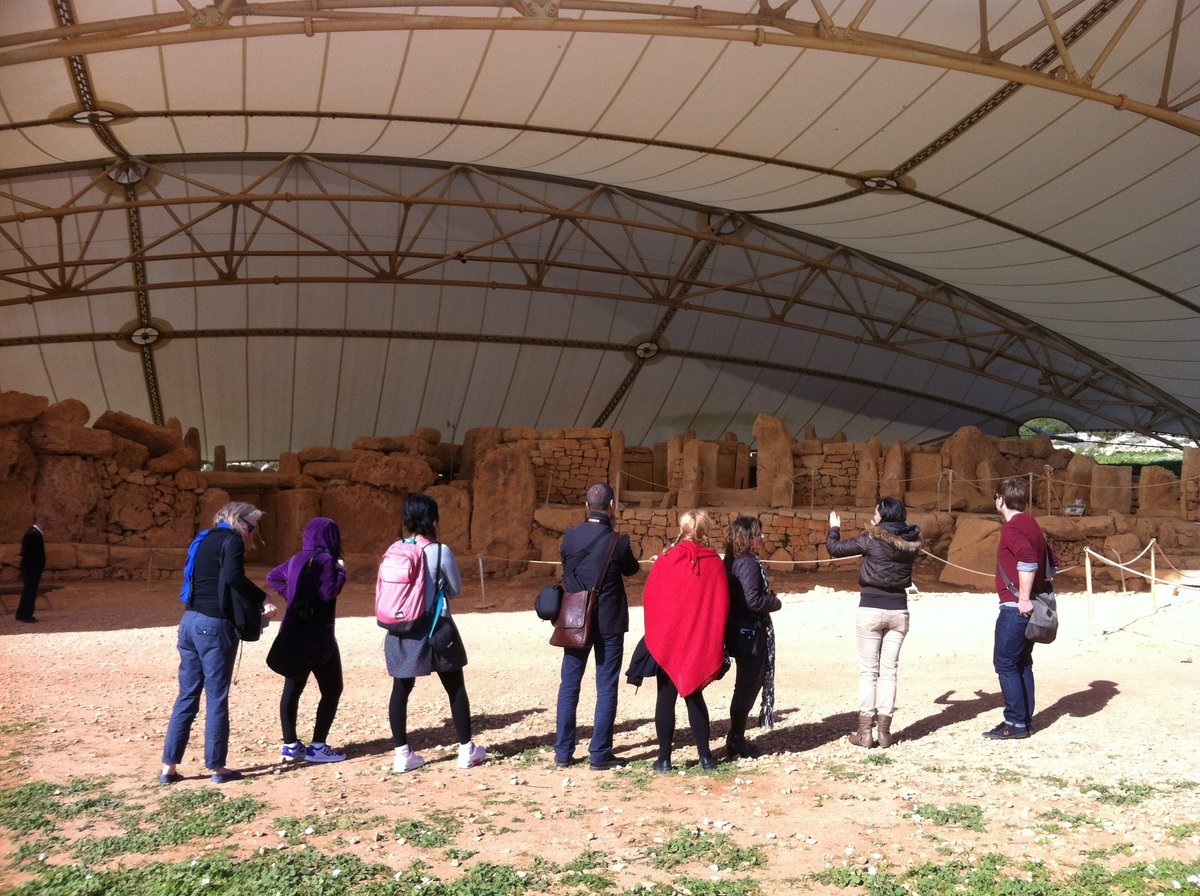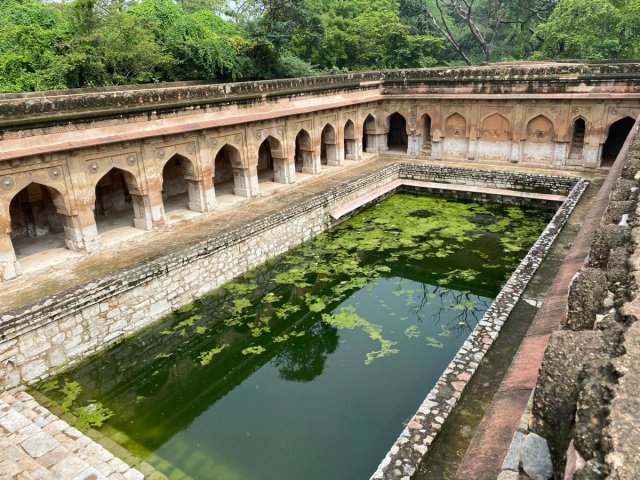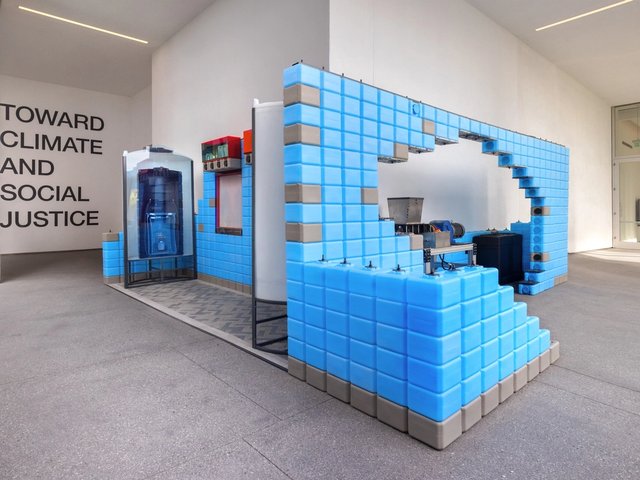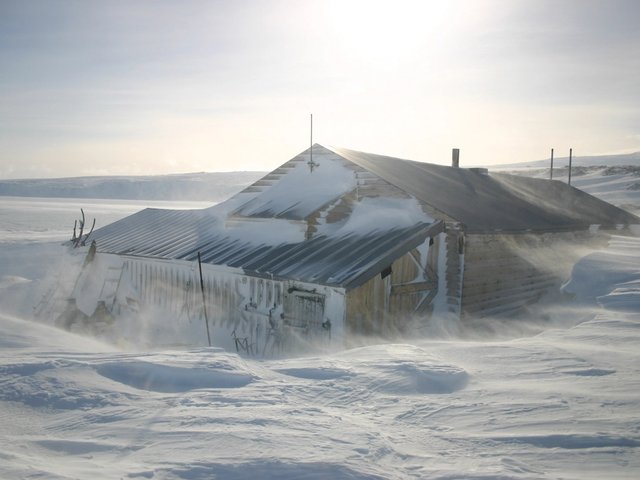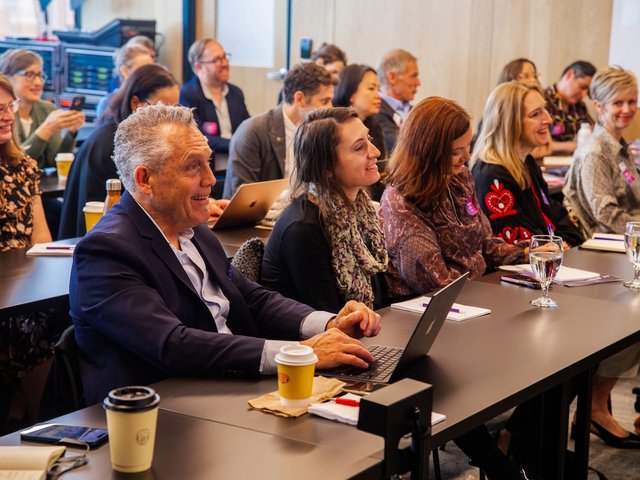The Getty Foundation launched a multi-year, international initiative to help early-career professionals and visual artists engage with climate justice this month. Dubbed the Getty Global Art and Sustainability Fellows programme, it will support fellows at 15 scientific and cultural institutions on six continents.
Fellows will address issues of sustainability and climate resiliency in the heritage sector, advancing their research at two key intersections of art and science: the preservation of sites and collections that have been impacted by global warming, and “interpretive work” aimed at raising awareness of climate issues in the form of public commissions and artist residencies.
The organisations tapped to host the fellows for the initiative are: Academy of Athens, the Bibliothèque Nationale de France in Paris, the Guggenheim Bilbao, James Cook University in Australia, Museu Paraense Emílio Goeldi in Brazil, the Image Permanence Institute at Rochester Institute of Technology, Singapore Art Museum and National Gallery Singapore, University College London’s Institute for Sustainable Heritage, and the Photosynthesis networked artist residency programme at Denniston Hill in New York, Luma Arles,Pivô in Brazi, the Srihatta-Samdani Art Centre & Sculpture Park in Bangladesh, Tate St Ives and The Mothership in Morrocco.
The Getty launched this initiative just days after scientists from the renowned Priestley Centre for Climate Futures at the University of Leeds released data showing that humanity has only three years left to change the course of climate disaster before Earth passes its 1.5°C warming threshold. In the wake of calamitous extreme weather events unfolding across the world, including the deadly Los Angeles wildfires that reached the Getty Villa's grounds in January, the Getty is taking a proactive and creative approach to an urgent, multi-layered problem.
“Getty is launching this initiative amongst global concern about climate threats and the need for practical solutions, and we continue to believe that the arts can play an unorthodox but compelling role in this conversation,” Katherine Fleming, the J. Paul Getty Trust's president and chief executive, said in a statement.
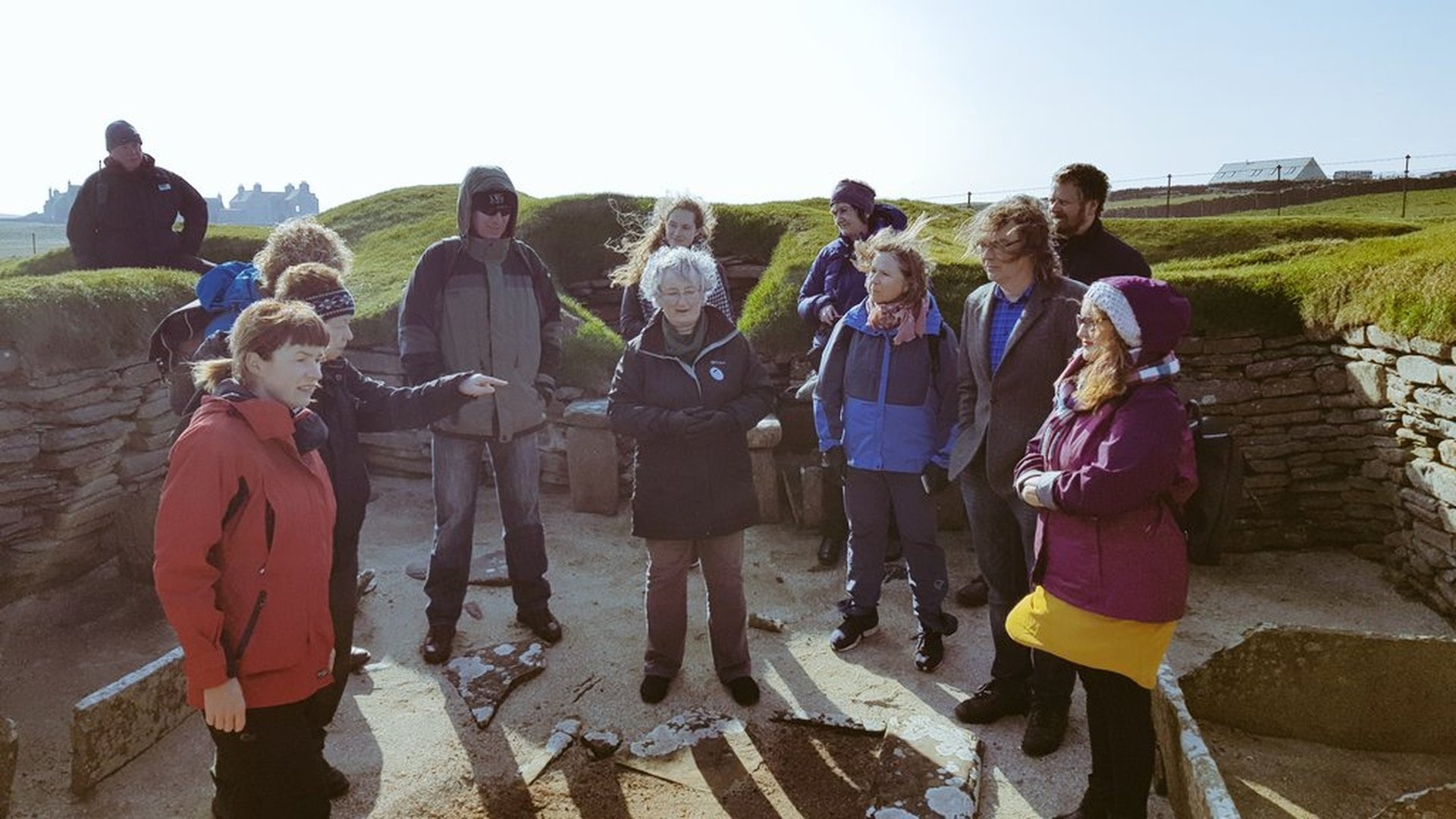
Discussions standing in the 5,000-year-old Skara Brae settlement during
the CVI Workshop for the Heart of Neolithic Orkney, Scotland Photo:
Marion Ratier. Courtesy James Cook University, Australia
Fellowship projects will range widely in scope and focus. The Guggenheim Museum Bilbao will assist fellows in contributing to its GU-Zero Sustainability Group, a multidisciplinary team that supports the museum’s goal of achieving carbon neutrality by 2030. The Institute for Sustainable Heritage at University College London will team with the Victoria and Albert Museum to help fellows research new ways to reduce the culture sector's “scope three emissions” (emissions that implicated in an organisation's activities but are outside of the organisation's direct control). And at James Cook University in northern Queensland, Australia, Scott Heron, a physics professor and the Unesco chair on climate change vulnerability of natural and cultural heritage, will oversee fellows as they learn techniques for assessing and preparing for climate risks at heritage sites.
“We urgently need more qualified professionals in heritage sustainability, so our first Getty Global Fellow will focus on expanding training to accelerate CVI [climate vulnerability index] implementation in high-needs areas around the world,” Heron said in a statement. “We’re also collaborating with First Nations people to tailor the CVI approach to the perspectives of Indigenous groups.”
Fellows, who will be accepted into the programme from a wide range of disciplines, will be given a two-year tenure to complete their projects. Each hosting organisation will receive up to three fellows consecutively.
“These partners were chosen for their abilities to advance the field at this intersection with sustainability, and we anticipate that their efforts as part of this programme will contribute leadership and changemaking in this area,” Camille Kirk, the Getty's sustainability director, said in a statement. “We look forward to convening these experts so they can connect, discover potential collaborations and share the regional, national and global implications of their work as they help to further develop the research and build adaptive skills across the cultural sector.”


